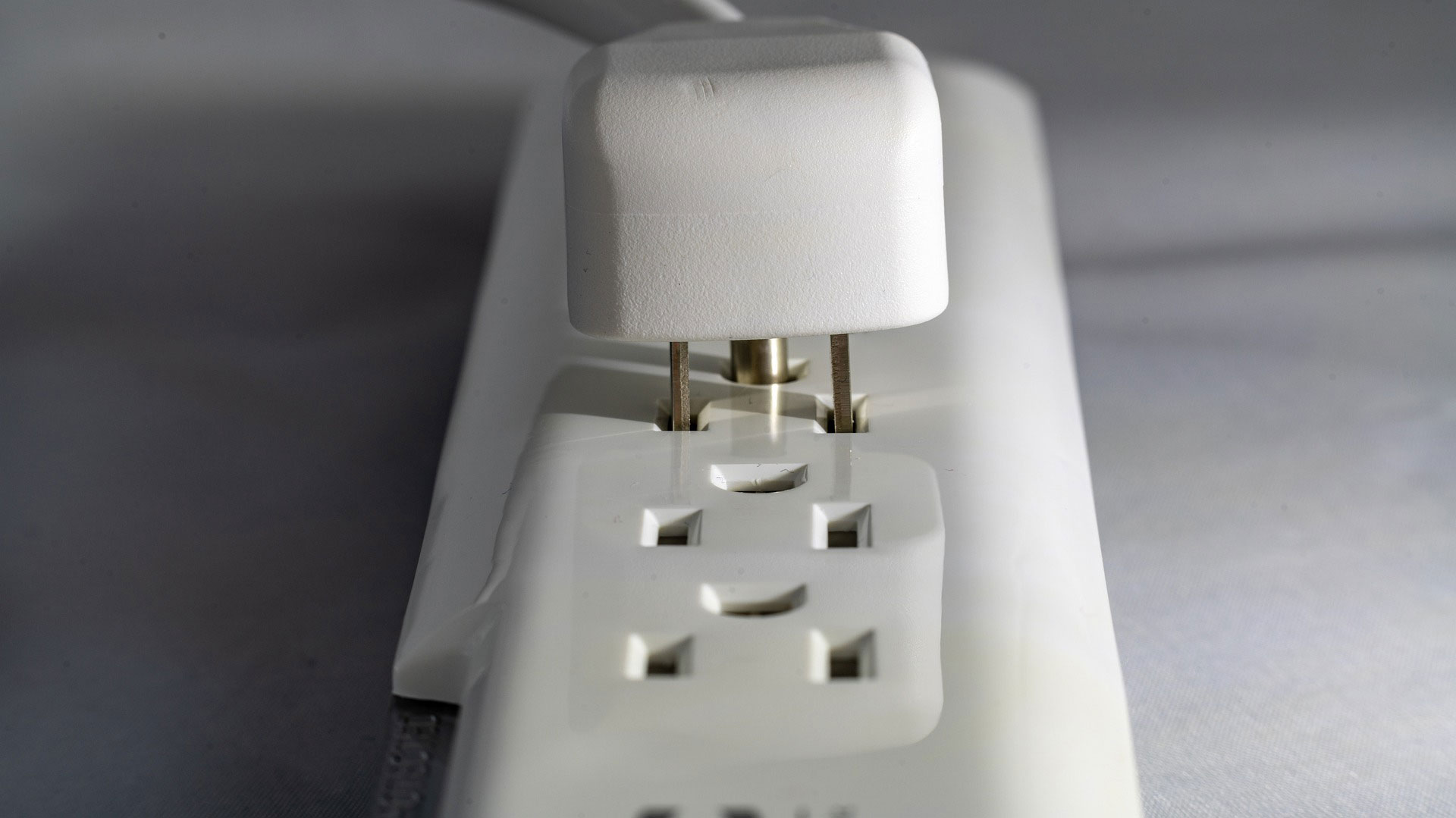With the multitude of appliances we need for cooking, sometimes there is not enough sockets to accommodate them all. For some people, the solution is to plug these appliances into an extension cord – the most common culprit being the microwave. However, is it safe to do so?
Microwaves need a lot of energy to run and thus a regular extension cord may not be able to take on the job and be a fire hazard to boot. That is why I generally do not recommend plugging your microwave into an extension cord for safety reasons. However, you can use an extension cord if (1) it is the right gauge, and (2) if it has a three-prong socket.
However, it is still better to stick on the safe side. In this article, I will explain the possible repercussions of using an extension cord for your microwave.
Why you shouldn’t plug a refrigerator into an extension cord
It is generally accepted that you shouldn’t use an extension cord for high electricity consuming appliances like air conditioners, refrigerators, and microwaves. Here are the reasons why this is so:
1. Fire Hazard
There is a reason why microwaves are designed with a short and stocky supply cord – it’s because they need so much power, thinner cords won’t be able to handle it. Extension cords have a lighter gauge (thickness) compared to the stock cord of a microwave and as well as the wiring inside a regular house socket.
Remember that the wattage of most microwaves go past 1,000W – more than regular extension cords are rated for. If you plug your microwave in an extension cord. it can cause it to overheat and catch fire. To ensure safety, you should plug your microwave in a grounded house socket.
2. The voltage drop can damage your microwave oven
The length and thickness of the wire affects how much electrical resistance it offers. Basically, the longer and thinner it is, the more resistance there is (remember why microwaves have short and thick wires?); this causes voltage drop along the way.
This voltage drop will eventually damage your microwave. According to Ohm’s law, voltage and amperes are inversely proportional – the lower the voltage, the higher the amperage. The more amps flowing, the more heat is produced. This heat can burnout your microwave’s parts and reduce its lifespan.
Things to consider when buying an extension cord for your microwave oven
It is always more advisable to use a permanent socket for your microwave – but we get it though, things are rarely ideal. You may have no choice but to plug your microwave into an extension cord.
Here are some guidelines you need to know when buying an extension cord for your microwave. While it is not best practice to do so, it will make your house safer compared to using any old cord you see lying around.
1. Gauge
As stated, the gauge refers to the thickness of the wire. It’s standard unit of measurement is AWG (American Wire Gauge).Rather counter-intuitively, the lower the AWG number, the higher the gauge.
| Category | Gauge | Amps |
| Light Duty | #16 | 7A |
| Medium Duty | #14 | 12A |
| Heavy Duty | #12 | 16A |
| Extra Heavy Duty | #10 | 20A |
For microwaves, a #10 heavy duty gauge extension cord should do the trick.
2. Length
As said earlier, as the cord gets longer, its current carrying capacity gets lower. To reduce the resistance (and thus voltage drop), choose an extension cord that is short and thick just like the cord that comes with the microwave.
3. Rated Wattage
Ch
Check the specs of the extension cord to see its rated wattage. Never go above this number, as if you overload it, it will start a fire.
You should also check your microwave’s rated wattage – you can see it in the rating label at the back of the unit. Alternatively, you can search for it in the manufacturer’s website.
4. Plug
Your microwave comes with a three-prong grounded plug, hence you should also buy a grounded extension cord. The third pin is known as the grounding pin. Do not remove this as this is for your own safety; in case of a malfunction in the electronics, the grounding pin delivers the excess electricity to the ground – rendering it harmless.
If the grounding pin was taken off, then the excess electricity will go to the next best conductor – in this case, it’s the metal body of your microwave oven – thereby electrocuting whoever touches it.
Conclusion
You can use extension cords for most small kitchen appliances, but for a microwave? Avoid it; it’s better to err on the side of caution.
Do your research first when buying an extension cord for your microwave. Not all cords are created equal; some can be more harmful than helpful.

Miguel Mores worked for 5 years as a member of the product management team for a home appliance company in the Philippines. He started 101appliance to answer the most common customer questions that he has encountered during his time in the industry. He now works in the digital marketing field and manages a small online bookstore on the side.

